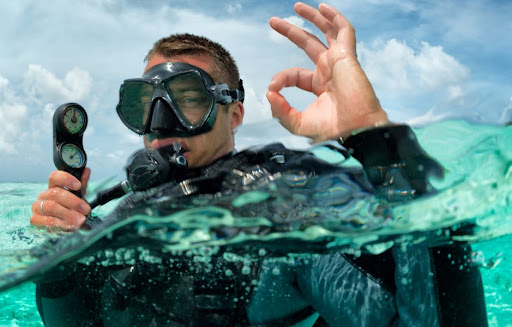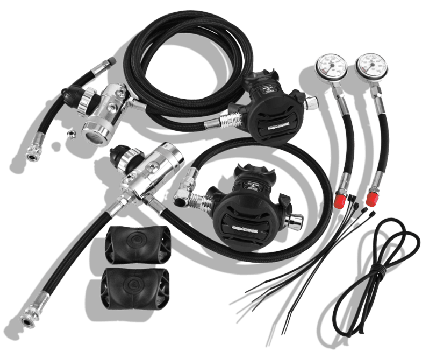The time is finally here, after a few dive trips and drives to the local quarry all the while trying out different types of rental and loaner equipment…you’ve decided to shop for scuba regulators. It’s an exciting development in your dive career, and you rush to browse the dive gear at DRIS, your favorite dive shop’s online inventory.
You go to add that slick set of scuba regulators to your cart and the option pops up of cold water or warm water. Your mind buzzes, what does that even mean? You dive in the cool quarry in between your trips to tropical destinations, but is that something that would require a “cold water” regulator?
While the answer to that is rather simple (more on this later), let’s have a quick discussion on what exactly “warm water” and “cold water” scuba regulators truly are.

What Are Warm Water SCUBA Regulators?
A warm water SCUBA regulator in the simplest definition is one that is “unsealed” and allows some water to enter the regulator system. Most tend to be on the economical side as they are simpler in design and function. If you’ve dove in a warm water destination and have used rental regulators, there’s a good possibility you’ve already made use of a warm water regulator . If your plan is to solely dive warm Caribbean-type waters then a simple warm water regulator is a good option for you.
When Do I Need Cold Water SCUBA Regulators?

If you ever dive in cooler waters you’ll need a regulator designed for those conditions. Pretty much any regulator can be used in warm water but not all can be used in cooler waters. The reason for this is that icing of the internal regulator components can occur.
Of course bear in mind that it’s not solely the water temperature that causes icing. Expansion and subsequent cooling of high pressure gasses from your SCUBA cylinder are the contributing cause of regulator icing. Cold water regulators contain an “environmental seal” that unlike the warm water regulator does not allow water or contaminants into the regulator. This seal is quite effective at keeping the moving parts of the regulator from icing up and causing a failure.
Even Cold Water SCUBA Regulators Can Ice Up!
If you’re diving in colder waters, the prudent diver needs to understand that even cold water regulators have the potential to ice up. You should take the following steps to further reduce the potential of a regulator ice up:
- Don’t breathe from or purge your second stage when above the water
- Set your second stage to a slightly increased breathing resistance than you would in warm waters.
- Inflate your BCD or SMB slower than you would in warm waters.
Should I Buy Cold Water or Warm Water Regulator?
The easiest question to ask when determining which regulator to get is “Will I ever dive in waters that come close to or below 50 degrees Fahrenheit? If that answer is a yes or even makes you think for a second, it would be the best course of action to make the added small investment in a sealed regulator that will allow you to dive in both warm and cold water. Questions? Just hit up any one of us here at your favorite local dive shop, Dive Right In Scuba.
